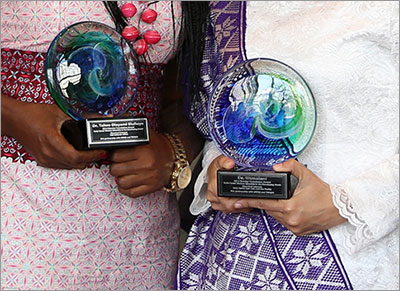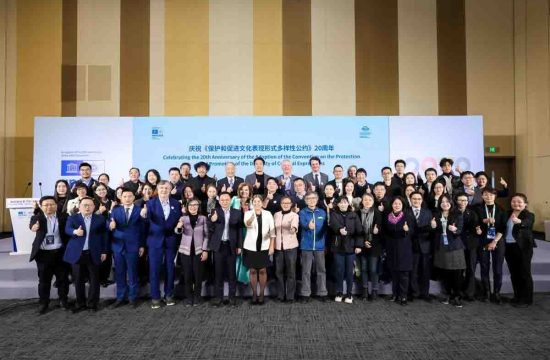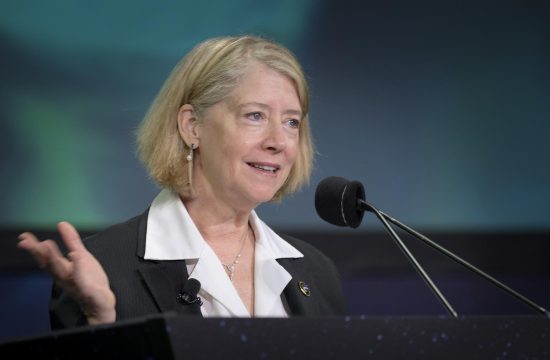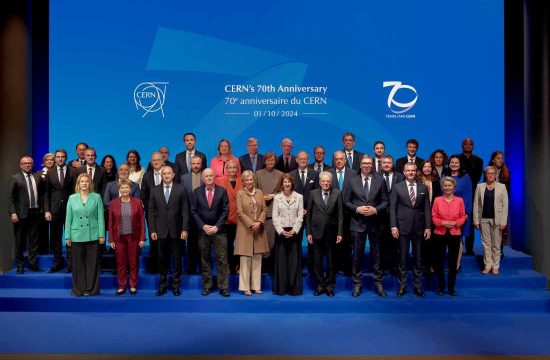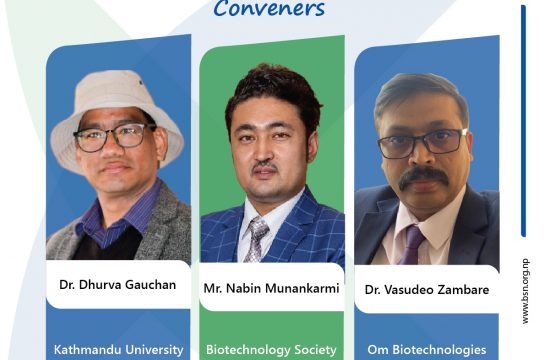Early-career researchers from Indonesia, Nepal, Peru, Uganda and Yemen honored for their life-enhancing work in health and nutrition
 Washington D.C. – Five researchers have been named winners of the 2016 Elsevier Foundation Awards for Early Career Women Scientists in the Developing World, in recognition of research that has strong potential health and economic benefits. The winning scholars from Indonesia, Nepal, Peru, Uganda and Yemen are being honored for their accomplishments in nutrition, psychiatry, biotechnology, women’s health, bioenvironmental sciences and epidemiology. They are also celebrated for mentoring young women scientists who are pursuing careers in agriculture, biology and medicine in their respective countries.
Washington D.C. – Five researchers have been named winners of the 2016 Elsevier Foundation Awards for Early Career Women Scientists in the Developing World, in recognition of research that has strong potential health and economic benefits. The winning scholars from Indonesia, Nepal, Peru, Uganda and Yemen are being honored for their accomplishments in nutrition, psychiatry, biotechnology, women’s health, bioenvironmental sciences and epidemiology. They are also celebrated for mentoring young women scientists who are pursuing careers in agriculture, biology and medicine in their respective countries.
The Elsevier Foundation awards are given in partnership with the Organization for Women in Science for the Developing World (OWSD) and The World Academy of Sciences (TWAS) for the advancement of science in developing countries. The five winners will receive their awards on February 13th during a ceremony at the Gender & Minorities Networking Breakfast at the American Association for the Advancement of Science (AAAS) Annual Meeting in Washington D.C.
The recognition is intended to invigorate the winners’ careers by giving them new visibility and networking opportunities, allowing them to engage with colleagues and the public early in their careers. The winners also serve as a source of inspiration for other women in countries where more scientific expertise is a critical need.
The 2016 winners
Sri Fatmawati, PhD — East and Southeast Asia and the Pacific Region
Assistant Professor at Laboratory of Natural Product and Chemical Synthesis, Institut Teknologi Sepuluh Nopember, Surabaya, Indonesia
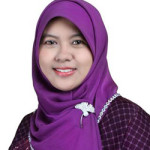 Dr. Fatmawati is being recognized for her work analyzing the medical and pharmaceutical potential of plant and fungi extracts normally used in herbal medicine.
Dr. Fatmawati is being recognized for her work analyzing the medical and pharmaceutical potential of plant and fungi extracts normally used in herbal medicine.She has also received the prestigious Pemenang Fellowship International L’Oréal-UNESCO for Women in Science for research analyzing substances from sponges that may lead to treatments for malaria, cancer and Alzheimer’s disease.
Sushila Maharjan, PhD – Central and South Asia Region
Research Director and founding member, Research Institute for Bioscience and Biotechnology (RIBB) in Katmandhu, Nepal
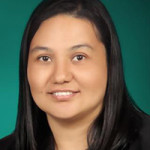 Dr. Maharjan is being recognized for her work using soil microbes to develop medically useful chemicals. Microbes create a great number of the materials used in medicine, including antibiotics. Dr. Maharjan is currently researching bacterial strains from the high-altitude regions of Nepal to identify substances useful for development of new antibiotics, as well as other medically useful compounds.
Dr. Maharjan is being recognized for her work using soil microbes to develop medically useful chemicals. Microbes create a great number of the materials used in medicine, including antibiotics. Dr. Maharjan is currently researching bacterial strains from the high-altitude regions of Nepal to identify substances useful for development of new antibiotics, as well as other medically useful compounds.
Magaly Blas, PhD – Latin America and the Caribbean Region
Associate Professor of Public Health, Universidad Peruana Cayetano Heredia, Lima, Peru
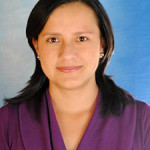 Dr. Blas is being recognized for her work in epidemiology using information and communication technology to solve health problems, particularly sexually transmitted diseases in urban and rural Peru. She also leads the Mama River Programme, training community members to use smartphones to collect basic information from pregnant women and forward this information to a medical ship to schedule visits.
Dr. Blas is being recognized for her work in epidemiology using information and communication technology to solve health problems, particularly sexually transmitted diseases in urban and rural Peru. She also leads the Mama River Programme, training community members to use smartphones to collect basic information from pregnant women and forward this information to a medical ship to schedule visits.Etheldrera Nakimuli‐Mpungu, PhD – Sub-Saharan Africa Region
Senior Lecturer and Psychiatric Epidemiologist at Makerere University College of Health Sciences in Kampala, Uganda
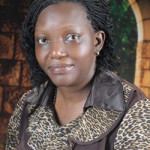 Dr. Nakimuli-Mpungu is be recognized for her work using psychotherapy as treatment of depression and alcoholism in Ugandans with HIV. Depression is a serious problem for HIV patients throughout Sub-Saharan Africa, making it more likely that those patients will stop taking their HIV-antiretroviral medications.Dr. Nakimuli‐Mpungu is working with service providers to integrate depression screening with HIV-treatment, as well as to include local communities in discussions of depression to help destigmatize the illness.
Dr. Nakimuli-Mpungu is be recognized for her work using psychotherapy as treatment of depression and alcoholism in Ugandans with HIV. Depression is a serious problem for HIV patients throughout Sub-Saharan Africa, making it more likely that those patients will stop taking their HIV-antiretroviral medications.Dr. Nakimuli‐Mpungu is working with service providers to integrate depression screening with HIV-treatment, as well as to include local communities in discussions of depression to help destigmatize the illness.“A country needs human capital; individuals who are productive members of society,” said Dr. Nakimuli-Mpungu. “This innovative model helps people coping with HIV/AIDS to regain their dignity, self-esteem and desire to fully participate and contribute to their communities.”
Ghanya Naji Mohammed Al-Naqeb, PhD – Arab RegionAssistant
Professor of Nutritional Sciences, Faculty of Agriculture, Sana’a University, Yemen
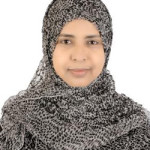 Dr. Al-Naqeb is being recognized for her research using chemicals isolated from Yemeni herbal plants for disease prevention. For example, a major focus of her work has been black cumin seeds, which are commonly used as a spice in Yemen, other Middle Eastern countries and India. Her research on these seeds has focused on their effects in protecting the heart from cardiovascular diseases.
Dr. Al-Naqeb is being recognized for her research using chemicals isolated from Yemeni herbal plants for disease prevention. For example, a major focus of her work has been black cumin seeds, which are commonly used as a spice in Yemen, other Middle Eastern countries and India. Her research on these seeds has focused on their effects in protecting the heart from cardiovascular diseases.
Despite all the difficulties we face in our country, Yemeni women have always worked hard to raise the name of Yemen. I am very pleased to represent my country with my scientific research.
Recipients were selected by a panel of eminent scientists. The prize includes USD $5,000 and all-expenses-paid attendance at the 2016 AAAS Annual Meeting.
“The determination, commitment and enthusiasm of these five women is an inspiration to us all but especially to other women undertaking scientific research in developing countries,” said OWSD President Fang Xin. “This award celebrates their excellent science and demonstrates that their hard work has had an impact both regionally and internationally, despite the difficult local conditions.”

“These are exemplary researchers, and their work has enormous potential to improve people’s health and support stronger communities,” said TWAS Executive Director Romain Murenzi. “Their work will be widely appreciated for the benefits it can bring to developing countries. Just as important, they will serve as models and as inspiration for young scientists – women and men – of a new generation.
“David Ruth, Executive Director of the Elsevier Foundation, said: “E year we learn more about the incredible challenges faced by women researchers doing science in low-resource settings. We hope that our awards help shine a light on these emerging women leaders and the important work they are doing in their fields.”
Elsevier Connect Contributor
Ylann Schemm (@ylannschemm) serves as the Elsevier Foundation Program Director which, provides partnership grants to advance global health, research and sustainability in developing countries and promote diversity in science. She is also the chair of the communications team for Research4Life, a unique UN-pan publisher partnership to provide free or low cost access to researchers in the developing world. Ylann is based in Amsterdam.


